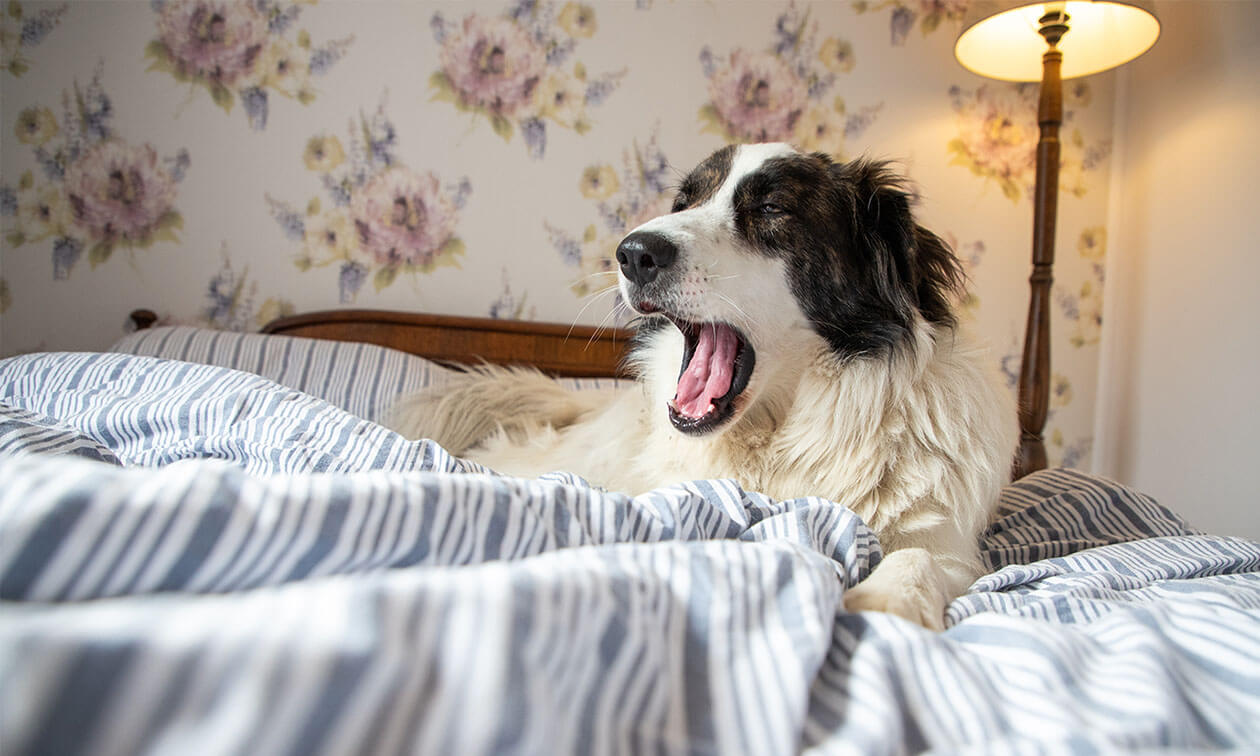Daylight saving time can throw off more than just your own routine — your pets might feel the shift too. Have you noticed that your pet’s sleep schedule or early morning meal requests don’t sync up with your schedule when the time changes?
While most pets adjust quickly, the change can cause stress for both them and you. Their needs suddenly seem out of alignment with your schedule. Their internal clocks don’t reset overnight, which can lead to disrupted sleep, food-related anxiety, and increased attention-seeking behavior.
Since our pets don’t understand why their routine suddenly shifted by an hour, it helps to know how daylight saving time can affect them (and what you can do to ease the transition).
How Does Your Pet Know What Time It Is?
While your pet can’t read a clock or perceive the concept of time as we do, they understand the passage of time. Has your pet ever been late for a meal? Probably not.
Our cat or dog’s circadian rhythm is coordinated in the brain. Circadian rhythm is like an internal clock regulating things like sleep-wake cycles, hormone levels, and more. This includes the body’s instinct to do things at a certain time of day, like roosters crowing at sunrise and raccoons coming out at sundown for food.
Your dog or cat’s circadian rhythm is primarily affected by the rising and setting sun. Beyond the time change, the natural change of sunrise and sunset can also impact their schedule.
What else affects circadian rhythm?
- Food intake or mealtimes
- Temperature
- Timing of activities
- Stress
- Social environment
Environmental cues, such as alarm clocks or jingling keys, help establish time and routine for your pets. You tend to feed your pet around the same time. Your schedule for things like waking up and going to bed stays pretty consistent. All of this helps your pet establish their own schedule and sense of time.
Why Changing the Clocks Can Impact Your Pet
When you think about the different elements of your dog or cat’s biology and routine that help them navigate time, you can see how turning the clock forward or back might impact them. This is mostly because we, as their caregivers, adjust our schedules based on that time change.
Most dogs adjust easily to the time change, but the biggest thing they notice is a change in mealtime. Cats may be more affected or take longer to adjust due to the shifting daylight and dark hours. Cats are predators and naturally sync up with the times their prey is most active. So, the active times for other animals play a role in when cats are active or resting. That tends to be dusk and dawn, regardless of the time on the clock.
Adjusting Your Pet’s Food and Activity Routine for Daylight Saving Time
If your pet is having trouble adjusting to the time change or the natural changes in daylight and dark hours, there are ways you can help.
Instead of suddenly changing your pet’s schedule by an hour, do it gradually. How gradually depends on how well your pet adapts to change. While some pets can adjust in a few days, others, such as puppies, kittens, older pets, or those with medical issues, may take more time.
Adjust their feeding and activity schedule by 10 to 15 minutes each day. For those who struggle, you can slow it down to even just five minutes.
For dogs who rely on potty walks, give them a bit of extra time outside to help avoid accidents during this adjustment period.
Adjusting Your Pet’s Sleep Schedule for Daylight Saving Time
This can be a challenging aspect for the humans in the home. Let’s say activity used to start up around 7 a.m. That’s when your pet is happy that everyone is waking up and things are happening. Then you set your clock back an hour. Your pet’s internal clock didn’t change. To them, you’re now sleeping an hour later, and they’re ready to roll at the usual time.
The natural changes in sunrise and sunset can also cause issues. Be patient with your pet if they wake you up early or are still active while you’re sleeping. The gradual changes discussed above will help them through the transition.
If you’re struggling, consult your veterinarian. Working with a certified trainer or behavior consultant can also be helpful.
Other Considerations for Daylight Saving Time and Seasonal Changes
Time changes and other adjustments to your pet’s routine may affect medication schedules. If your pet takes meds, consult your veterinarian to see if that schedule should change and how best to do it.
ZPC-04334

.jpg)

